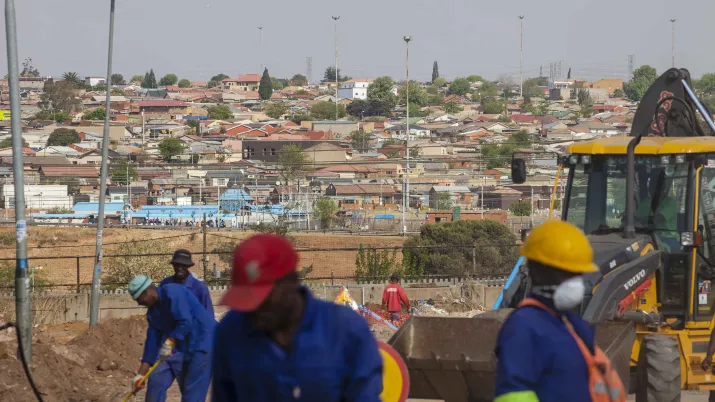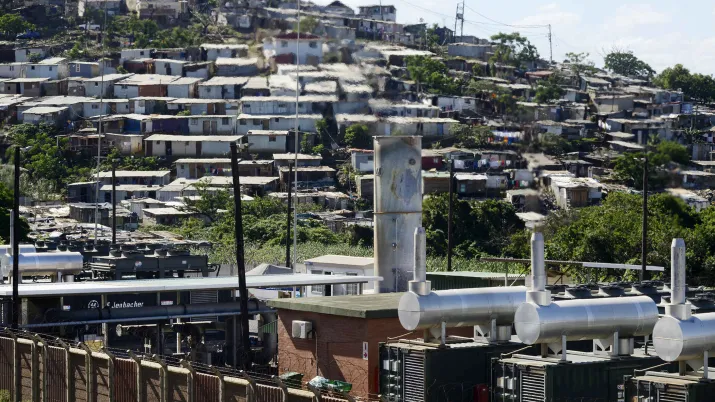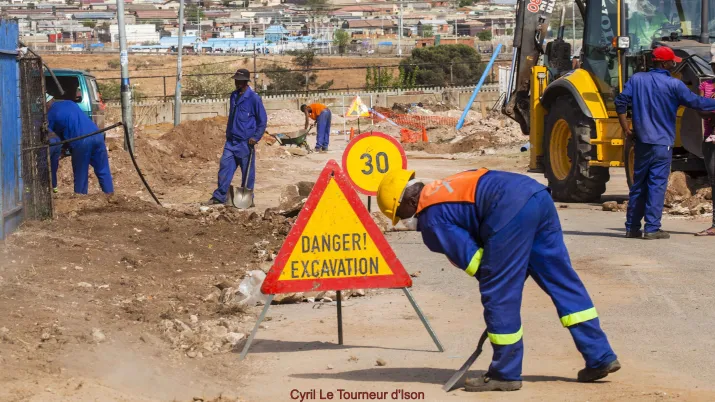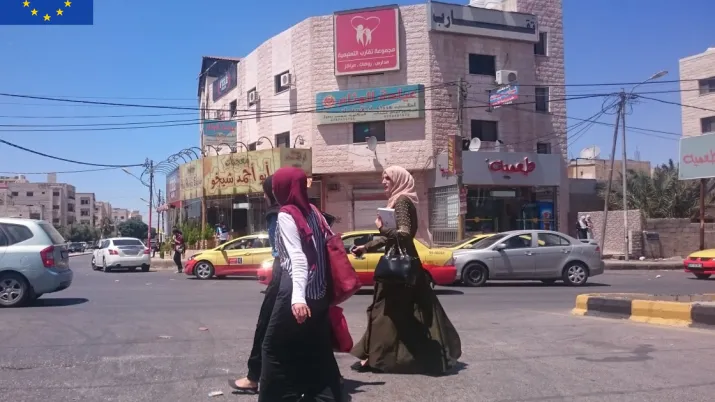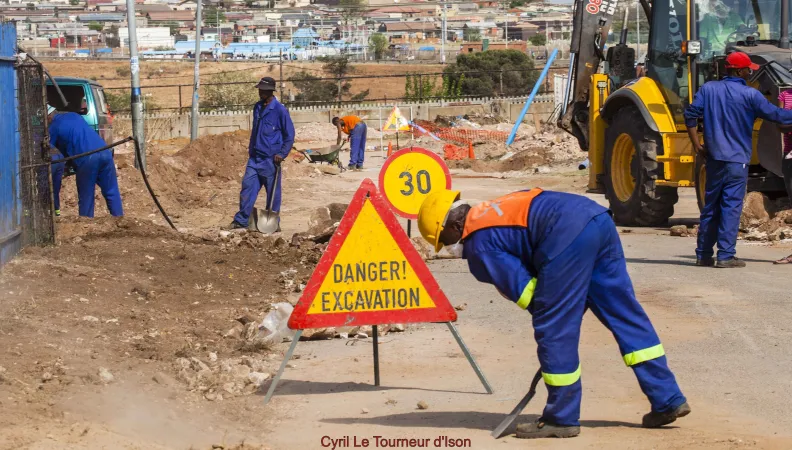 Legal notice EU (project) What is the role of Public Employment Programmes (PEPs) in South Africa’s social protection system, and how do they contribute to employment, inclusion, and inequality reduction? The Extension of the EU-AFD Research Facility on Inequalities program seeked to answer this question.
Legal notice EU (project) What is the role of Public Employment Programmes (PEPs) in South Africa’s social protection system, and how do they contribute to employment, inclusion, and inequality reduction? The Extension of the EU-AFD Research Facility on Inequalities program seeked to answer this question.
Context
In South Africa, escalating unemployment, rising poverty and structural inequality remain persistent challenges, with young people and marginalized communities disproportionately affected. Many workers remain excluded from stable formal employment, and rely on social grants for basic income security. PEPs have emerged as a key policy instrument to address these structural gaps, providing temporary work, income support and skills development opportunities.
These programmes operate alongside traditional social protection measures, including cash transfers and grants. While PEPs offer immediate employment and income, it is critical to understand their broader impact beyond income effects, and how they intersect with poverty reduction, inclusion, and long-term labour market outcomes.
This project is part of the Extension of the EU-AFD Research Facility on Inequalities. Coordinated by AFD and financed by the European Commission, the Extension of the Facility will contribute to the development of public policies aimed at reducing inequalities in four countries: South Africa, Mexico, Colombia and Indonesia over the period 2021-2025.
Objectives
To better understand the role of PEPs within South Africa’s evolving social protection landscape, this study analyzed how they intersect with unemployment, inequality, and social policy. The study highlighted structural inequalities – such as land dispossession, concentrated economic power, and spatial inequities – that perpetuate poverty and unemployment.
In particular, the paper focused on redefining the relationship between social assistance and public employment. The study explored how PEPs can go beyond merely providing income support to leveraging the added value of work, enhancing social inclusion, and fostering skills development. The study revealed how integrated and differentiated strategies are needed in order to address the diverse labour market challenges by advocating for scalable, rights-based employment guarantees and adaptive policy frameworks to balance social and economic imperatives.
Research findings
You will find below the research paper and the "Policy Dialogues" publication related to his project:
- Public Employment Programmes in South Africa’s Changing Social Protection Landscape
- Strengthening Public Employment Programmes in South Africa’s Social Protection Framework
Contact
-
Anda DAVID
Economist, scientific coordinator of the EU-AFD Research Facility on Inequalities

Discover other research projects
Redesigning the South African “Social Relief Distress” grant program for higher impact
Completed
2023 - 2023
Evaluation of local stimulus effects in South Africa: Jobs and grants programmes
Completed
2022 - 2023
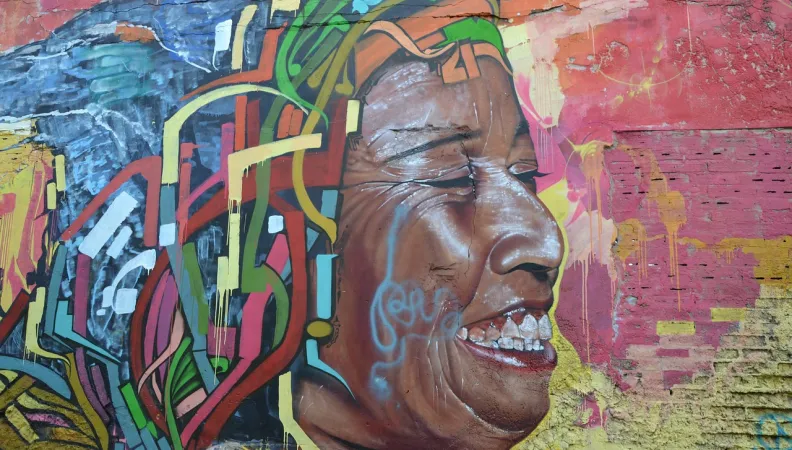 Legal notice EU (project) What impact do fiscal policies and social spending have on closing gender gaps in Colombia? The Extension of the EU-AFD Research Facility on Inequalities program seeks to explore this question in close collaboration with the Colombian government and in partnership with Universidad de los Andes.
Legal notice EU (project) What impact do fiscal policies and social spending have on closing gender gaps in Colombia? The Extension of the EU-AFD Research Facility on Inequalities program seeks to explore this question in close collaboration with the Colombian government and in partnership with Universidad de los Andes.
Context
As recent figures indicate, inequality and poverty in Colombia have increased in recent years, especially after the Covid-19 pandemic. The deterioration of these indicators places Colombia among the most unequal countries in the world. The Multidimensional Diagnostic on Inequalities in Colombia also demonstrates that gender gaps are particularly prevalent in the country. Indeed, employment rates are lower for women than for men at all levels of education. For example, in 2020, while the employment rate of women without any level of education reached 31%, for men it was 65%.
In this context, the Colombian government is committed to reduce the gaps between population groups and between territories and has identified closing gender gaps as one of its priorities. Given this situation, it is critical to delve into the understanding of the causes and solutions to inequality, and identify ways through which inequality can be reduced through public policies, social spending and fiscal policy.
In order to support the Colombian government in the development of public policies aimed at reducing inequalities, the Extension of the EU-AFD Research Facility on Inequalities, in close collaboration with local research centres and local authorities, has already:
- Elaborated the Multidimensional Diagnostic on inequalities and generated statistics on inequalities with the National Administrative Department of Statistics (DANE). The diagnostic is a statistical overview of inequalities from multiple angles that seeks to support public policy decisions by providing key information for the reduction of the most important gaps in the country.
- Implemented a fiscal incidence analysis through the methodology of the Commitment to Equity (CEQ), and, in close collaboration with the Ministry of Finances, elaborated a tool, which enables to assess the impact on inequalities of the latest tax reform in the country, through micro-simulations.
These two studies opened the door to new possibilities of analysis that provide data, information and relevant knowledge for the Colombian Government as an input to strengthen the design, implementation and monitoring of policy instruments that can reduce the inequality and gaps between population groups, especially those of fiscal policy and social spending.
This project is part of the Extension of the EU-AFD Research Facility on Inequalities. Coordinated by AFD and financed by the European Commission, the Extension of the Facility will contribute to the development of public policies aimed at reducing inequalities in four countries: South Africa, Mexico, Colombia and Indonesia over the period 2021-2025.
Objectives
This research project will use innovative methodologies to take advantage of the information derived from the merging of surveys, databases and administrative records to strengthen the understanding of the impacts of the fiscal and spending measures of the Colombian government on closing gender gaps, and more generally, to strengthen the analysis of income inequality measures in Colombia.
This study also aims to generate an in-house capacity allowing the Government of Colombia to continue reporting and analysing new inequality metrics that inform the design of more equitable public policies in the country.
Method
The research project will:
- Develop a methodology for the analysis of the impacts of fiscal and government spending measures on closing gender gaps and income inequality in Colombia, based on the CEQ tool;
- Determine the necessary methodological and operational components that will be updated on a recurring basis by different actors involved in public policy decision-making;
- Estimate a battery of indicators of the impact of fiscal, tax and social spending policy on gender gaps.
The analysis will use surveys, databases of supply and demand of social programs, as well as administrative records and tax information of natural persons, integrating them into a CEQ model. These data will serve as a basis for the inclusion of the gender approach and for the analyses that will be carried out as part of this research.
Throughout the research, working groups will be organised with the National Planning Department, the National Administrative Department of Statistics, the National Tax and Customs Directorate and other stakeholders who can contribute to the conceptual and methodological development of the research, the analysis of the results and the application of the tool to policy processes.
Research findings
You will find below the different research papers related to this project:
In progress
Contact
-
Anda DAVID
Economist, scientific coordinator of the EU-AFD Research Facility on Inequalities

